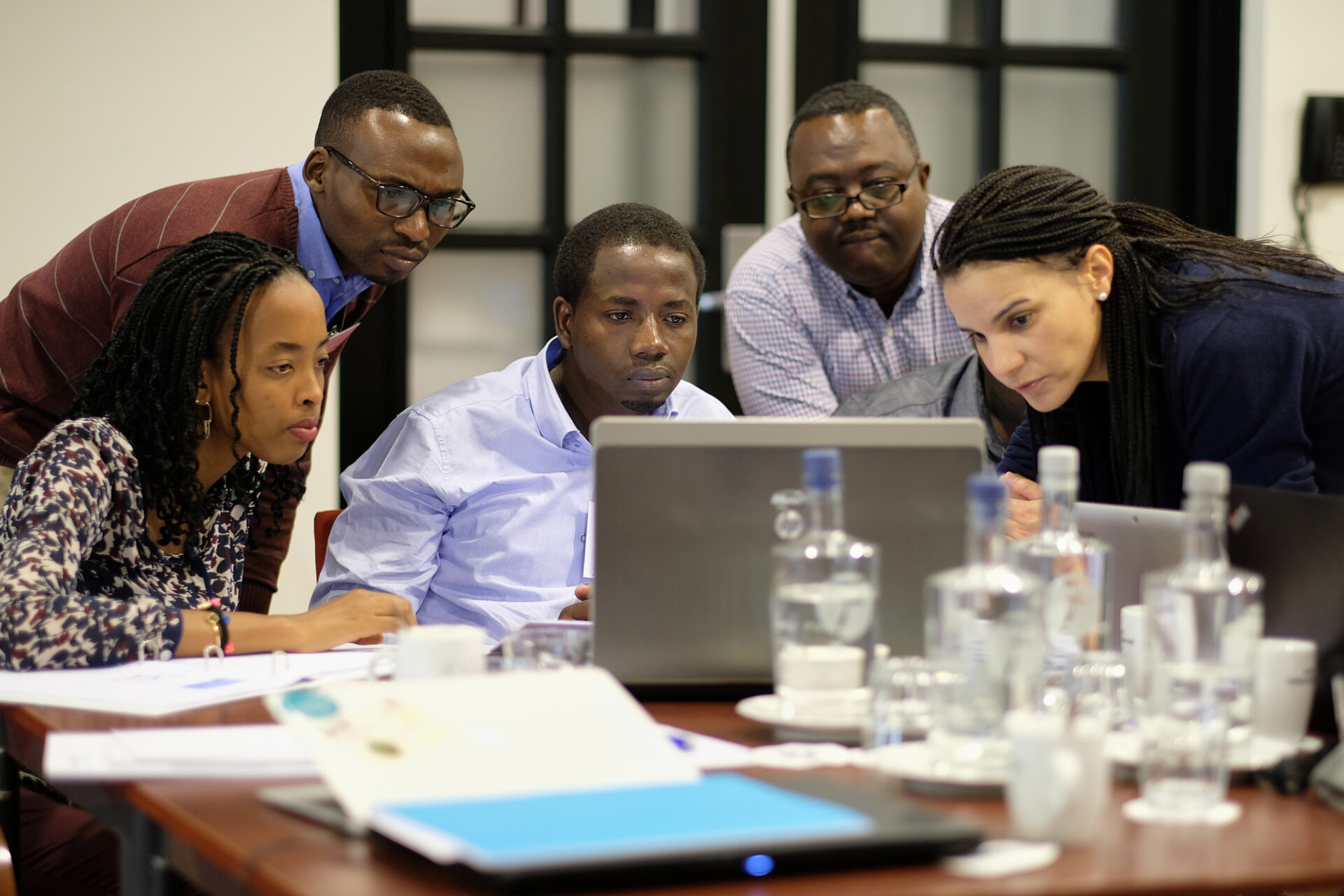The partnership, marked via a joint Memorandum of Understanding, aims to create synergies, and add value to existing efforts to sustainably mitigate antimicrobial resistance (AMR) in Low- and Middle-Income Countries (LMICs).
“Drug resistance is a global health issue that requires more than multidisciplinary and multisectoral action. With innovative models and unconventional partnerships we can go a long way. Our proven approaches to support national capacities focus not just on teaching how, but more importantly, on providing expert support for implementation on the ground. We are glad to partner with ICARS through our expertise and experience in infectious disease management and antimicrobial stewardship so to contribute to the global fight against this silent pandemic.”
Dr. Heiman Wertheim, Professor in Clinical Microbiology, Radboudumc, Nijmegen, the Netherlands and Chair, Dutch Society for Medical Microbiology
With shared values regarding sustainability, capacity building, and solutions-focused approaches to global One Health challenges, the partnership provides a unique opportunity to combine our strengths. With experience of bringing in local expertise and tailoring AMR solutions to the context, ICARS will complement Radboudumc’s established, long-term programme of activities.
“The only way to tackle a global challenge like AMR is through partnerships and a strong network of collaborations, based on trust and the ability to stand on each other shoulders to reach our goals. I am delighted we are partnering with Radboudumc and the superb team there. We share similar visions and ways of working especially with partners in Low- and Middle-Income Countries.”
Dr. Ghada Zoubiane, Head of Partnerships and Stakeholder Engagement
Our first collaborative project, set to start in January 2023, aligns with our shared recognition of the need for Antimicrobial Stewardship Programme (ASP) implementation-oriented support for LMICs. Together we have identified that the Dutch AMS Masterclass & SPICE expert consultancy developed and delivered by Radboudumc is an excellent resource that can assist in changing behaviour and practice in human use of antimicrobials and help build national capacity for expanding and maintaining antimicrobial stewardship programmes. The programme will be adapted to different LMIC contexts, together with experts from ICARS and recipient countries.
The project is specifically aimed at:
- Providing training and teaching tools adapted to low-resource contexts, tailoring well-tested practices to different LMICs settings.
- To build a sustainable in-country capacity of trainers for the delivery of contextualised courses in AMS, that are accredited and affordable for the national economy and circumstances.
- To ensure structured and cost-effective expert support for the implementation of AMS through building a registry of existing experts in the country and region
The course will be delivered to 400 participants over three years, including healthcare professionals engaged in ICARS human health projects in the first instance and throughout One Health trajectories in the future, across all regions external participants will also be invited to join.
“Our programme is currently focused on antimicrobial stewardship in human health, but the approaches it uses are universally applicable to other sectors, as it is in fact – focused on how to change behaviour in professional practice. As such, it is very much amenable to different aspects of One Health. Together with ICARS and country partners we look forward to increasingly develop implementation courses, e.g., in veterinary medicine.”
Dr Jeroen Schouten, intensivist, Director of AMS Programme, Radboudumc, Nijmegen, the Netherlands and Chair, ESGAP
Since 2019, the Dutch AMS Masterclass was already taught to over 300 healthcare providers from more than 20 countries, and earlier this year it was incorporated as a fundamental course in the two-year ESCMID AMS certificate programme. Starting this year, the programme will be initiated in 4 European countries, and we are now glad to expand the program to LMICs, starting on the African continent.
“Most LMICs are trying despite their limitations to address AMR in the health sector through evidence-based strategies such as setting up of antimicrobial stewardship programs. (AMS). Setting up sustainable AMS programs require good training and models that are adaptable to different local contexts. This is why the partnership of Radboudumc and ICARS is valuable, as it brings 2 organizations with expertise in AMS, solution focused and building capacity within local contexts.”
Dr Mirfin Mpundu, Partnerships and Stakeholder Engagement Lead for Africa
The first collaborative preparatory activities will begin in January 2023, and we look forward to sharing more information with you then via our projects page.
Related links
Radboudumc Centre for Infectious Diseases
Dutch AMS Masterclass programme
SPICE expert consultancy

